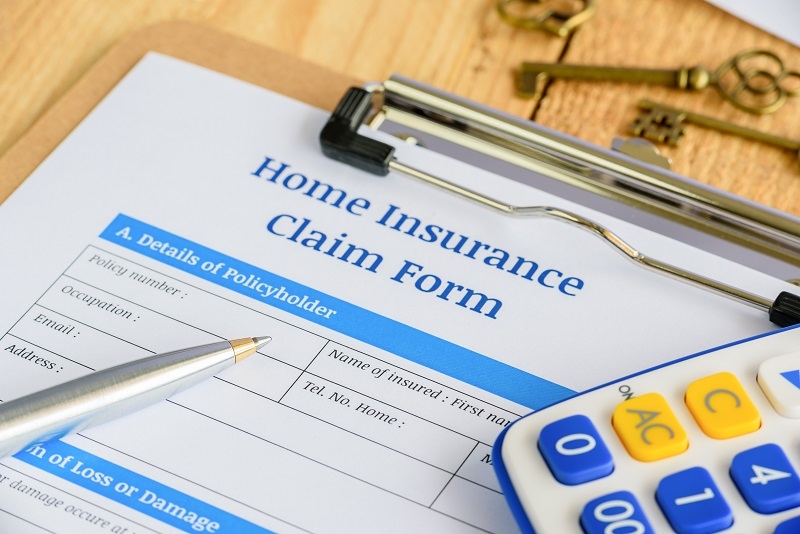Protect Your Home and Finances From Homeowners Insurance 101

Understanding the basics of homeowners insurance 101 is vital to protect your private home and budget. With domestic coverage explained, you’ll see how policies protect against damages, robbery, and legal responsibility. Many first-time owners confuse house owners coverage vs loan coverage; however, the distinction is obvious: one protects you, the alternative your lender. Knowing what influences domestic coverage premiums—inclusive of place, home situation, and credit rating—facilitates you to plan higher. Smart domestic coverage tips for first-time shoppers include comparing regulations, bundling coverage, and asking about reductions. With the right information, you may secure less expensive, dependable safety for your property.
Home Insurance Coverage Explained in Simple Terms
To understand homeowners' coverage 101, you first want home coverage insurance explained honestly. Homeowners coverage is largely a protection net—it protects you from economic losses related to damage, robbery, or liability claims. A popular policy generally includes several key additives:
- Dwelling Coverage – Pays to repair or rebuild your home if it’s damaged by a covered occasion, consisting of fire, wind, or vandalism.
- Other Structures Coverage – Protects structures now not connected to your house, like fences, garages, or sheds.
- Personal Property Coverage – Covers your assets, from furniture to electronics, if they’re stolen or broken.
- Liability Protection – Pays criminal charges or damages if a person is injured on your private home and you’re determined liable.
- Loss of Use Coverage – Helps cover dwelling expenses (like accommodations or food) if you can’t stay in your house while it’s being repaired.
While this covers maximum risks, no longer the whole lot is protected. For example, flood and earthquake damage normally require separate guidelines. That’s why reading your coverage cautiously is crucial in homeowners coverage a hundred and one.
Homeowners Insurance vs Mortgage Insurance
A commonplace region of confusion for first-time customers is homeowners coverage vs mortgage insurance. Although they sound comparable, they serve very specific purposes.
- Homeowners' Insurance protects you as the homeowner: It covers your property, assets, and legal responsibility dangers. This is designed to help you recover financially if a catastrophe moves.
- Mortgage Insurance protects your lender: If you are positioned down much less than 20% on your own home, many creditors require mortgage coverage. It ensures they receive a commission if you can’t make your loan payments.
Understanding the difference between owners' insurance vs loan coverage is a crucial part of owners' coverage 101 because many shoppers mistakenly anticipate one replaces the other. In reality, each might also apply depending on your mortgage terms and economic state of affairs.
What Affects Home Insurance Premiums
If you’ve ever questioned why human beings with comparable houses pay exclusive costs, the answer lies in what impacts domestic coverage rates. Insurance corporations calculate risk differently, but a few accepted factors have an impact on fees:
- Location – Living in an area at risk of herbal disasters or crime will increase your charges.
- Home Value and Rebuilding Costs – Larger, extra pricey houses fee more to insure due to the fact they’re more expensive to rebuild.
- Age and Condition of the Home – Older houses or previous structures (like electric wiring) often result in better premiums.
- Your Deductible Choice – A higher deductible lowers your month-to-month top class but way you’ll pay extra out of pocket if you file a declare.
- Claims History – If you’ve filed more than one coverage claim in the past, your quotes can be higher.
- Credit Score – In many states, insurers issue on your credit score history whilst setting premiums.
By understanding what affects domestic coverage rates, you may make smarter alternatives—like upgrading your private home’s safety features or improving your credit score—to keep charges manageable.

Home Insurance Tips for First-Time Buyers
For new house owners, getting the proper policy can be intimidating. That’s why having domestic coverage guidelines for first-time shoppers is so valuable. These sensible steps will help you stabilize the right insurance without overspending:
- Shop Around and Compare – Don’t accept the primary quote. Get at least three quotes to examine insurance options and fees.
- Bundle Policies – Many insurers provide reductions in case you combine home and auto insurance.
- Understand Replacement Cost vs Actual Cash Value – Replacement cost insurance will pay to rebuild your house as new, even as real coins value elements in depreciation. Replacement cost is typically higher for safety.
- Look for Discounts – Installing security structures, smoke detectors, or storm shutters can lower charges.
- Review Coverage Annually – Your home’s value, belongings, and local dangers may additionally change over the years. Reviewing your coverage each year guarantees you live properly protected.
For everybody diving into homeowners' insurance one zero one, those steps make the system much less overwhelming and greater financially rewarding.
Common Mistakes to Avoid in Homeowners Insurance 101
Even with true intentions, many homeowners make mistakes when buying coverage. Avoiding these errors can save cash and complications:
- Only Buying the Cheapest Policy – Low charges often imply limited coverage. Always compare the info.
- Not Reading the Exclusions – Many anticipate that all failures are protected, but floods and earthquakes are typically no longer covered.
- Underestimating Personal Property Value – People frequently forget about how a whole lot their belongings are worth. An inventory allows you to avoid being underinsured.
- Failing to Update Policies After Renovations – If you redesign or add rectangular pictures, your coverage has to replicate the accelerated cost.
Knowing these pitfalls is a part of homeowners coverage 101 and guarantees you don’t put yourself financially.
Smart Strategies to Lower Your Premiums
Once you understand what affects home coverage rates, you may use that understanding to save money. Here are a few confirmed strategies:
- Increase Your Deductible – If you can manage to pay for a better out-of-pocket value, your monthly premiums will drop.
- Improve Home Safety – Adding deadbolts, smoke detectors, or a monitored alarm gadget can bring about discounts.
- Maintain Good Credit – A stable credit score indicates to insurers that you’re a low-risk customer.
- Bundle Policies – Combine automobile and home coverage to release considerable savings.
- Loyalty Discounts – Staying with the same insurer for several years can also lessen your prices.
These tips assist in striking a balance between affordability and stable safety, a crucial takeaway from owners' coverage 101.
When to Consider Extra Coverage
Standard rules don’t cover everything. Depending on where you live and your lifestyle, you may want to add more protection:
- Flood Insurance – Required in flood-prone areas but treasured even in regions with occasional heavy rains.
- Earthquake Insurance – Crucial if you stay near fault lines.
- Umbrella Insurance – Provides additional legal responsibility coverage if your well-known coverage limits aren’t sufficient.
- Scheduled Personal Property Coverage – Adds more safety for high-priced objects like rings, artwork, or collectibles.
Part of studying owners' insurance one hundred and one is recognizing that your state of affairs calls for going past the basics.
Final Thoughts on Homeowners Insurance 101
At the homeowners' insurance 101 is an easy reality: your property is one of your most valuable assets, and protecting it is non-negotiable. By getting home insurance coverage explained in clear phrases, knowing how homeowners' coverage vs mortgage coverage works, and knowing what affects domestic insurance rates, you’re better prepared to make informed choices. For new consumers, applying domestic coverage suggestions for first-time consumers ensures you begin your journey with the proper safety.
While nobody can expect the destiny, the right insurance coverage gives peace of mind that you and your price ones are safeguarded against life’s unexpected events. Your home is more than 4 partitions—it’s your safety, your consolation, and your destiny. With the proper coverage, you could guard it all.
This content was created by AI

